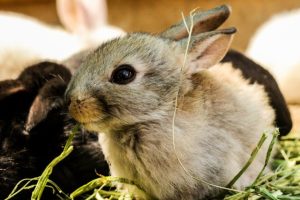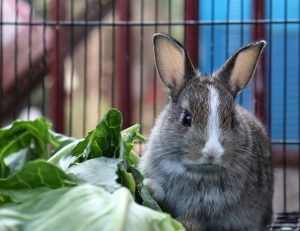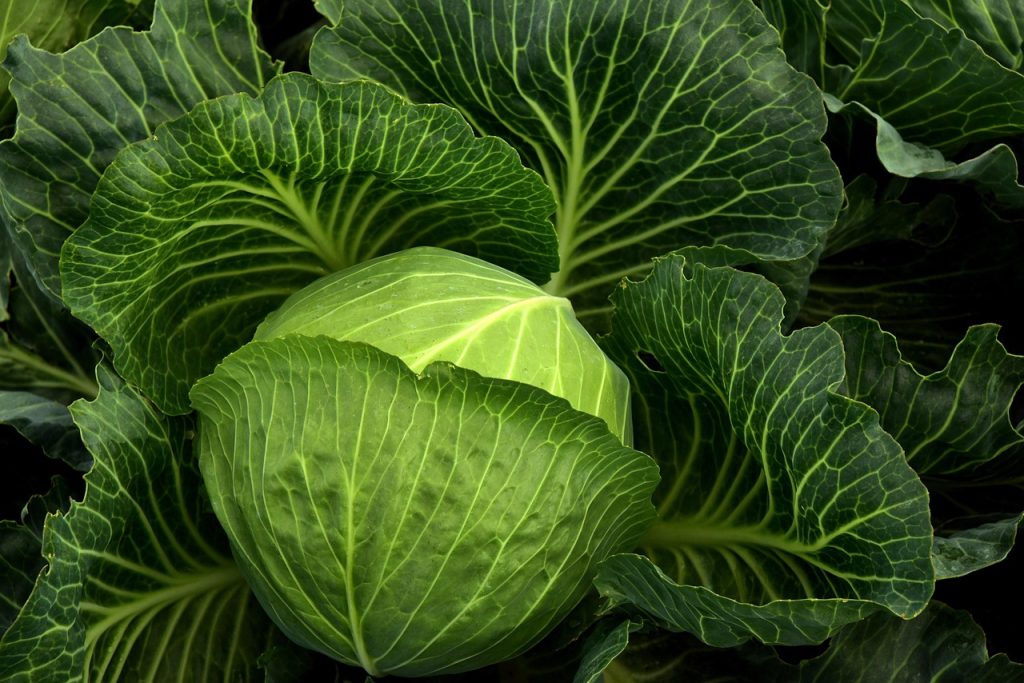Can Rabbits Eat Cabbage Every Day? Pros and Cons of This Leafy Treat
If you own a rabbit, you might wonder: Can rabbits eat cabbage? And you may even wonder whether it can eat it every day. Many pet owners want to provide their furry friends with fresh and healthy foods, and cabbage is often one of the preferred foods. However, feeding your rabbits with cabbage daily comes with benefits and risks.

In this post, we will explore whether rabbits can eat cabbage every day, its nutritional value, potential risks, safe feeding methods, and alternative vegetables for a balanced diet. Let’s get into the details of it!
1. Can Rabbits Eat Cabbage? Nutritional Benefits
A leafy green vegetable that is rich in vital nutrients, cabbage can improve a rabbit is health. Below are some of the main nutrients found in cabbage and how they help rabbits:

Cabbage has High in Fiber
A diet high in fiber is necessary for rabbits to maintain healthy digestion and prevent constipation. Cabbage contains dietary fiber, which helps keep the gut healthy and prevents constipation that usually occurs from diets. However, cabbage does not replace hay, which should be the main part of a rabbit’s diet. In this case, do not ignore their usual diet of cabbage only.
Cabbages are Rich in Vitamins and Minerals
Vitamin K, vitamin C, and vitamin B6 are abundant in cabbage and can all help your rabbits stay healthy. In addition to the aforementioned nutrients, cabbage also contains minerals like calcium, magnesium, and potassium that promote healthy bones and nerve function.
Read More: Can Rabbits Eat Cucumber? Find Out
It has Low in Calories
Cabbage is low in calories and fat, making it a great occasional snack for rabbits without contributing to weight gain. You can inculcate it as part of their diet to help manage their weight.
What are the benefits of low calories to rabbits’ health?
Diets low in calories help rabbits control their weight by preventing obesity and the health problems that come with it. It helps to reduce weight in your rabbits and therefore promotes good health. It also helps the healthy digestion and dental health of your rabbits.
It Helps to Control Dehydration
Since cabbage has a high water content, it helps keep rabbits hydrated, especially during hot weather seasons. You may not need too much water when you add cabbage to their food.
With these benefits, it’s easy to see why many rabbit owners ask, Can rabbits eat cabbage daily without any issues?
2. Can Rabbits Eat Cabbage Every Day? Potential Risks
Although cabbage has many health benefits, feeding it daily may cause problems for your rabbit. Here are some reasons why:
Digestive Issues
One of the biggest concerns with feeding cabbage daily is that it can cause gas and bloating in rabbits. Their digestive system is sensitive, and too much cabbage may lead to discomfort. Some rabbits tolerate it well, while others may experience gas buildup.
Imbalance in Diet
Cabbage is nutritious but should not replace other essential foods like hay, pellets, and a variety of vegetables. A rabbit’s diet should be 80% hay, with vegetables making up a small portion of their diet. Feeding cabbage daily only without any other food can lead to an imbalance in nutrients. Make sure you balance their diet for good health.
Calcium Content in Cabbage
Although cabbage contains some calcium, too much calcium in a rabbit’s diet can lead to bladder stones or kidney issues. If your rabbit already gets calcium from other foods, adding cabbage daily may increase health risks. Recognize the ingredients in the food you are feeding them to avoid major health consequences.
The residues of pesticides
One thing you must also know is that commercially grown cabbage may contain pesticide residues that can be harmful to rabbits. Before giving cabbage to your pet, always give it a thorough wash.
Due to the risks to their health, give it in moderation. Instead of asking, “Can rabbits eat cabbage daily?” it’s better to focus on how often and how much to feed it.
3. How to Feed Cabbage to Rabbits Safely
To ensure your rabbit benefits from cabbage without negative effects, follow these safe feeding guidelines:
Introduce Cabbage Gradually
If your rabbit has never eaten cabbage before, introduce it slowly. Start with a small piece and observe their reaction for 24 hours. If there is no sign of gas or diarrhea, you can gradually increase the amount.
Read More: How to Keep Rabbits Out Of Yard- 5 Complete Guide
Feed in Moderation
Cabbage should only be a small part of your rabbit’s vegetable intake daily and not like hay or alfalfa leaves. A good rule of thumb is to offer a few leaves (1–2 times per week) instead of daily feeding.
Mix with Other Vegetables
To create a balanced diet for your rabbits, mix cabbage with other rabbit-friendly vegetables such as:
- Romaine lettuce
- Carrot tops
- Kale (in moderation)
- Spinach (occasionally)
- Basil
Choose organic for them, if possible, to balance the diet of your rabbits.
If possible, opt for organic cabbage to reduce exposure to pesticides as they consume. Before giving your bunnies regular cabbage, make sure to give it a thorough wash.
4. Best Types of Cabbage for Rabbits
Not all cabbage varieties are the same. Some types are easier to digest than others. When giving them cabbage, look for the one that can be digested easily. Here’s a comparison:
- Green Cabbage—Most common, but can be harder to digest in large amounts.
- Red Cabbage—Higher in antioxidants but may cause mild digestive issues.
- Savoy Cabbage—Softer texture, easier to digest.
- Napa Cabbage—Best option as it’s gentler on the stomach.
For best results, rotate different types and monitor how your rabbit responds.
5. Alternative Vegetables for a Balanced Diet
If you want to reduce the risk of overfeeding cabbage, include other rabbit-safe vegetables in your diet. Here are some excellent alternatives:
Leafy Greens
- Parsley
- Cilantro
- Dill
- Mint
Vegetables (in moderation)
- Carrots (small amounts due to sugar content)
- Zucchini
- Bell peppers
Avoid These Toxic Vegetables
Some vegetables are not safe for rabbits and should be avoided:
Onions and garlic can cause toxicity.
Potatoes are hard to dig and are high in starch.
Tomato Leaves—Contain harmful compounds.
By providing variety, you ensure your rabbit gets all the necessary nutrients without over-relying on cabbage.
Conclusion
So, can rabbits eat cabbage every day? While cabbage is a nutritious vegetable, it should not be fed daily due to potential digestive issues and dietary imbalances. Instead, offer it in moderation (1-2 times per week) along with a mix of other safe vegetables.
If you’re introducing cabbage, start slow, monitor your rabbit’s reaction, and ensure a balanced diet with plenty of hay and fresh water.
Have you fed your rabbit cabbage before? Share your experiences in the comments below!


4 Comments
Pingback: 10 Unsafe Foods for Rabbits You Must Avoid
Pingback: 10 Safe Vegetables for Rabbits: A Complete Feeding Guide
I am regular visitor, how are you everybody? This post posted at this
web page is really fastidious.
Thank you.